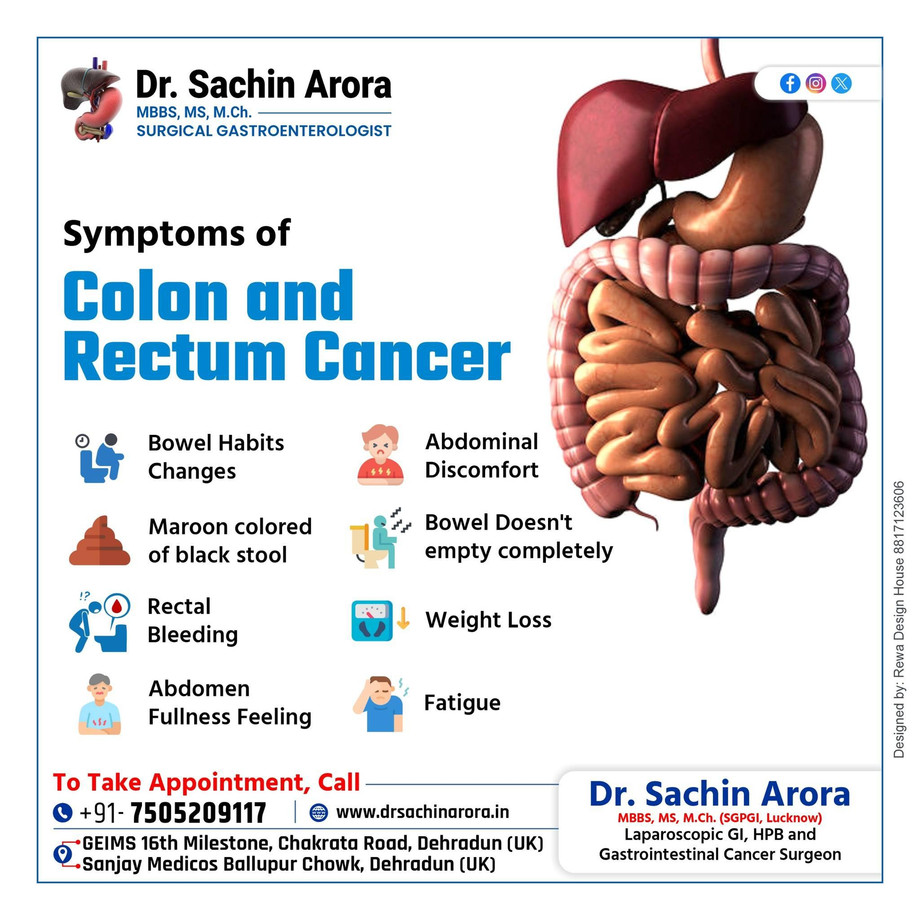What is Colon and Rectum Cancer?
Colorectal cancer begins in the colon (large intestine) or the rectum, which are essential parts of the digestive system. This cancer typically starts as small, non-cancerous polyps that, over time, may develop into cancer.
Common Symptoms to Watch Out For:
-
Changes in Bowel Habits: Sudden and persistent changes like diarrhea, constipation, or narrowing of the stool.
-
Abdominal Discomfort: Pain, bloating, and frequent cramps can indicate underlying issues.
-
Maroon or Black Stools: Dark-colored stools may suggest bleeding inside the digestive tract.
-
Incomplete Bowel Emptying: A sensation that the bowel doesn't empty completely.
-
Rectal Bleeding: Noticing blood in the stool should never be ignored.
-
Unexplained Weight Loss: Significant weight loss without any dietary changes.
-
Persistent Fatigue: Constant tiredness or weakness without a clear reason.
-
Feeling of Fullness: A bloated or full feeling in the abdomen.
Risk Factors:
-
Age over 50 years.
-
Family history of colorectal cancer or polyps.
-
Diet high in red or processed meats and low in fiber.
-
Sedentary lifestyle, smoking, and heavy alcohol consumption.
-
History of inflammatory bowel diseases like Crohn's disease or ulcerative colitis.
Prevention and Early Detection:
-
Regular screenings like colonoscopy after the age of 50.
-
Maintaining a balanced diet rich in fruits, vegetables, and whole grains.
-
Staying physically active and maintaining a healthy weight.
-
Avoiding smoking and limiting alcohol intake.
Expert Care with Dr. Sachin Arora
Dr. Sachin Arora, a distinguished Surgical Gastroenterologist, specializes in the early detection and advanced treatment of colorectal cancer. With vast expertise in laparoscopic GI surgeries, Dr. Arora offers patient-centric, compassionate care to ensure the best possible outcomes.
📍 Visit us at:
Take charge of your health today — schedule a consultation and stay informed!

